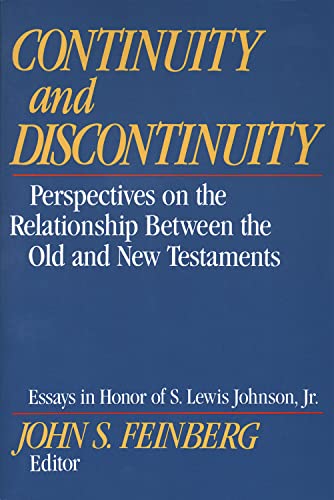The Faith of Israel. Its Expression in the Books of the Old Testament
Written by W. Dumbrell Reviewed By Robert L. Hubbard, JrThis book offers an introduction to the OT different from many others available. The author is William Dumbrell, formerly of Regent College in Canada, now dean of graduate studies at Moore Theological College in Australia. Some readers may be familiar with his Covenant and Creation: An Old Testament Covenantal Theology (Exeter: Paternoster, 1984). Like any introduction, this book moves book-by-book through the Hebrew canon, providing helpful background and interpretation. The startling omission of a discussion of pentateuchal origins, however, quickly signals that this is no ordinary introduction. Its exclusive focus is on the theological purpose of each book (p. 9). It aims to expound the theology, not of the Bible’s antecedent oral or written sources, but of its canonical parts. Indeed, the author apparently aligns himself with the programme of B. S. Childs by concentrating on the ‘final canonical redaction’ (p. 11).
In general, I deem his attempt to be a moderate success. The author pursues his purpose through an attractive format. Each OT book—even little Obadiah! (pp. 166–167)—receives treatment in a separate chapter. Each chapter provides an outline of the book’s contents and discusses its theology under the outline’s subdivisions. For example, the discussion of Exodus (pp. 28–39) treats in succession the birth and call of Moses (chs. 1–4), the plagues (7:8–11:10), the passover and exodus (12:1–15:21), and the covenant and tabernacle building (15:22–40:38). With Deuteronomy (pp. 53–61), however, the author follows a thematic approach (i.e. land, holy war, rest, and ‘deuteronomic humanitarianism’). In addition, the book gives helpful introductory remarks about the nature of prophecy (pp. 97–98, before Isaiah), wisdom literature (pp. 215–216, before Job), and apocalyptic (pp. 256–257, before Daniel). Except for brief comment on the structure of Deuteronomy (pp. 53–54), however, there is no literary treatment of biblical legal forms. The lawsuit background of Hosea 4 and Micah 6 receives mention but no amplification (pp. 145, 176).
Also noticeably absent is any introduction to OT narrative literature. The author discusses whether Jonah is a parable or an allegory (p. 168) but bypasses comment on the influence of Deuteronomy (or at least a ‘deuteronomic theology’) on 1–2 Kings. The reason may be that Dumbrell considers the books of Kings to be ‘prophetic works’ (p. 88) in which ‘the prophetic editor’ (p. 87) interprets history from ‘a prophetic perspective’ (p. 92). He may be right, of course. Scholars continue to debate whether their editor was a prophet, priest, or wisdom teacher. But what Dumbrell omits is an extensive exposition of the unique theological perspective of those books.
The volume has several commendable features. First, the book teems with literary and theological insight. Particularly pleasing are instances of what some would call ‘intertextuality’—that is, when a later text echoes strains from earlier ones. For example, in Jonah 3:4 Dumbrell claims the words ‘forty days’ and ‘overthrow’ recall the flood and fall of Sodom and Gomorrah respectively (p. 171). Similarly, in Daniel 1 he hears echoes from episodes in Genesis 1–11, especially the Tower of Babel incident (p. 259). Of course, some readers will question many of the alleged allusions. Nevertheless, all will find the author’s attempts intriguing enough to pause for additional reflection. Further, the reader will profit from brief word studies and expositions of key passages which the author includes, e.g. ‘image’ (pp. 17–18 on Genesis), ‘messiah’ (p. 79 on 1 Samuel), and hesed (pp. 145–146 on Hosea). The author’s exposition of key texts—for example, Exodus 19:5–6 (pp. 34–35) and the new covenant in Jeremiah 31:31–34 (pp. 121–125)—are excellent.
Second, the volume gives the general reader a kind of one-volume commentary on the OT. Students will appreciate the quick overview of each biblical book which Dumbrell provides. Again, not everyone will agree with the theological purpose claimed for each book. But Dumbrell at least offers well-informed suggestions to be compared with those of others. Third, the exposition of biblical books as finished, canonical wholes strikes this reviewer as refreshing. Granted, such an approach need not invalidate the continuing discussion of the pre-history, whether oral or written, of biblical materials in other contexts. Such discussion may, indeed, cast further illumination on the present, final text. Nevertheless, it is a joy to hear each book—a final, literary entity—address the reader through Dumbrell’s clear, reverent analysis.
On the other hand, at times the author tends to summarize major scholarly interpretive options too tersely. For example, he discusses the literary form of Job in one paragraph of 15 lines, quickly running through the many alternatives—epic, drama, comedy, etc. (pp. 216–217). His haste will not trouble the informed reader who understands the options and knows the scholars promoting them. Such ‘data dumping’, however, will likely frustrate the uninformed reader who lacks background and perspective. The failure to cite either authors promoting various views or works to be consulted for further study only exacerbates the frustration. Further, one must question the author’s judgment at some points. The reader will wonder why the theology of the Psalms, customarily thought to be so rich, receives only three paragraphs (pp. 211–212) while the book’s structure, titles and literary types get extended discussion (pp. 208–209, 212–214). Further, if Obadiah is worth two pages, surely Joshua deserves more than four (pp. 65–68). In addition, the reader is startled to read that the prophets ‘do not in the main add to Israel’s theological understanding’ (p. 11)! Surely those ancient preachers contributed more than a reapplication of Israel’s foundational traditions to a new situation.
The key question to pose, however, concerns whether the OT contains one unified theology or several theologies. Dumbrell denies the latter option, yet he also eschews an attempt to find a theological centre for the OT (p. 11). Apparently, he believes that the ideas of covenant and salvation history hold the OT together. He claims that the prophets, psalms, and even wisdom literature merely apply and interpret ‘the basis of Israel’s faith, particularly her covenantal understanding of her relationship with Yahweh’ articulated in the Pentateuch and Former Prophets (p. 10; cf. p. 98). Hence, he understands the message of Daniel to explain what course ‘the history of salvation’ will take in the exile and beyond (p. 257) and makes much of the allusions to salvation history within Esther (pp. 254–255).
OT wisdom literature, however, always offers the acid test of such a framework, and Dumbrell is fully aware of the problem. Hence, he concedes that wisdom’s roots lie in the ‘wider framework’ of creation theology (pp. 215, 247). He then seeks to integrate wisdom and redemption under ‘the broad horizons of creation theology’ (p. 216). Both, he claims, presuppose creation—wisdom in its assumption of an orderly universe, salvation history in its narration of creatures inhabiting God’s world. Such a solution is familiar and to a certain extent satisfactory. In this book, however, the thesis raises a twofold problem: it seems to conflict with the prominence which Dumbrell gives to the idea of covenant in the OT; and it fails to explain fully how the ideas of covenant and creation relate. In sum, the author’s attempt to interrelate the OT’s canonical parts needs further amplification.
Nevertheless, this reviewer highly commends the author for tackling an enormous task—the exposition of the theology of individual OT books. He has produced a delightful, useful outline of the entire OT. At the same time, I hope that the author will someday flesh out that outline into a fully fledged OT theology. He has made a good beginning on that task, and such a book is sorely needed.
Robert L. Hubbard, Jr
North Park Theological Seminary, Chicago, Illinois







